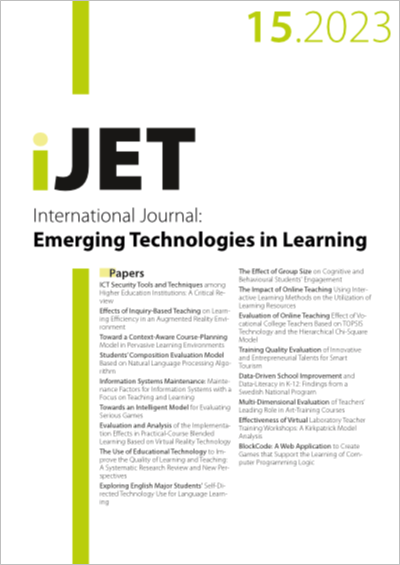Data-Driven School Improvement and Data-Literacy in K-12: Findings from a Swedish National Program
DOI:
https://doi.org/10.3991/ijet.v18i15.37241Keywords:
data literacy, data driven decision making, data driven education, professional development, ethics, databased decision making, school improvementAbstract
Data-driven school improvement has been proposed to improve and support educational practices, and more studies are emerging describing data-driven practices in schools and the effects of data-driven interventions. This paper reports on a study that has taken place within a national program where 15 schools from 6 different municipalities and organizations are working at classroom, school and municipality levels to improve educational practices using data-driven methods. The study aimed at understanding what educational problems teachers, principals and administrative staff in the project aimed to address through the utilization of data-driven methods and the challenges they face in doing so. Using a mixed-methods design, we identified four thematic areas that reflect the focused problem areas of the participants in the project, namely didactics, democracy, assessment and planning, and mental health. All development groups identified problems that can be solved with data-driven methods. Along with this, we also identified five challenges faced by the participants: time and resources, competence, ethics, digital systems and common language. We conclude that the main challenge faced by the participants is data literacy, and that professional development is needed to support effective and successful data-driven practices in schools.
Downloads
Published
How to Cite
Issue
Section
License
Copyright (c) 2023 Robert Hegestedt, Jalal Nouri, Rebecka Rundquist, Uno Fors

This work is licensed under a Creative Commons Attribution 4.0 International License.



